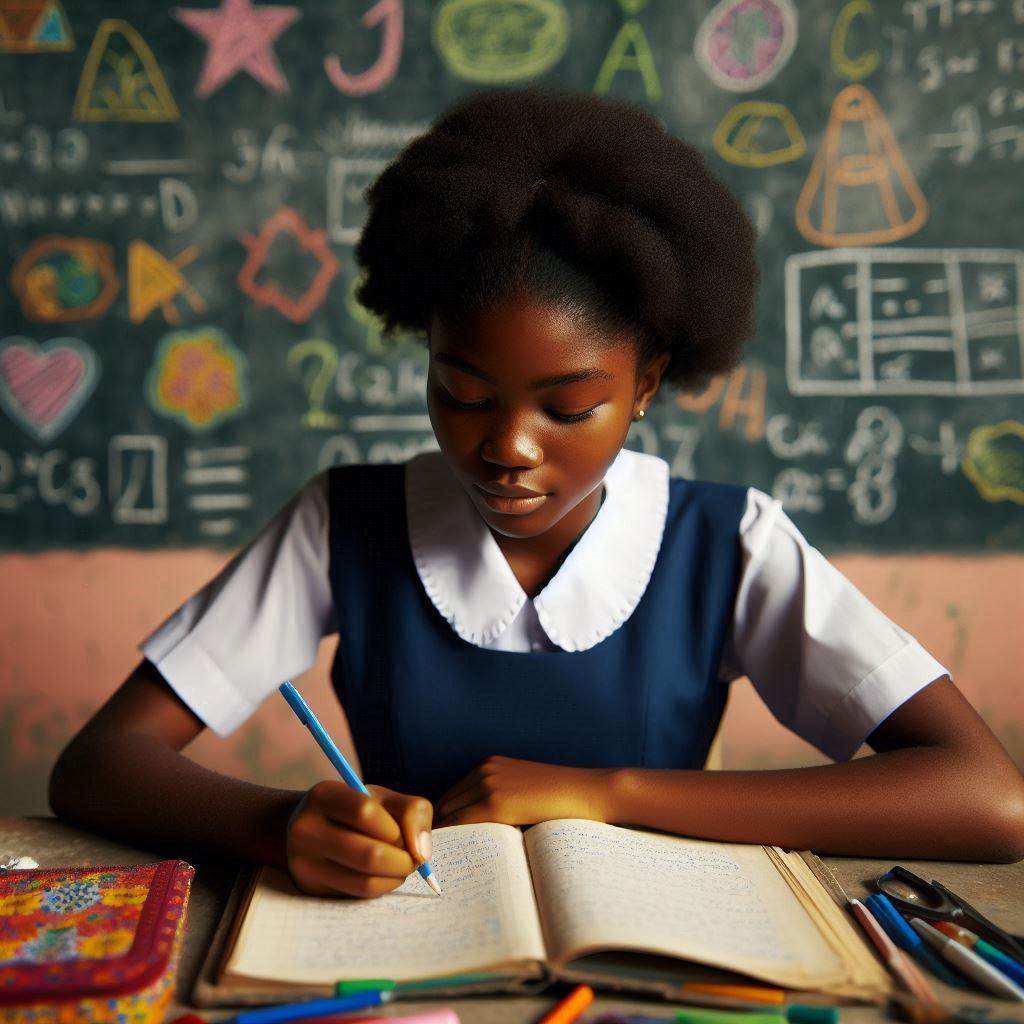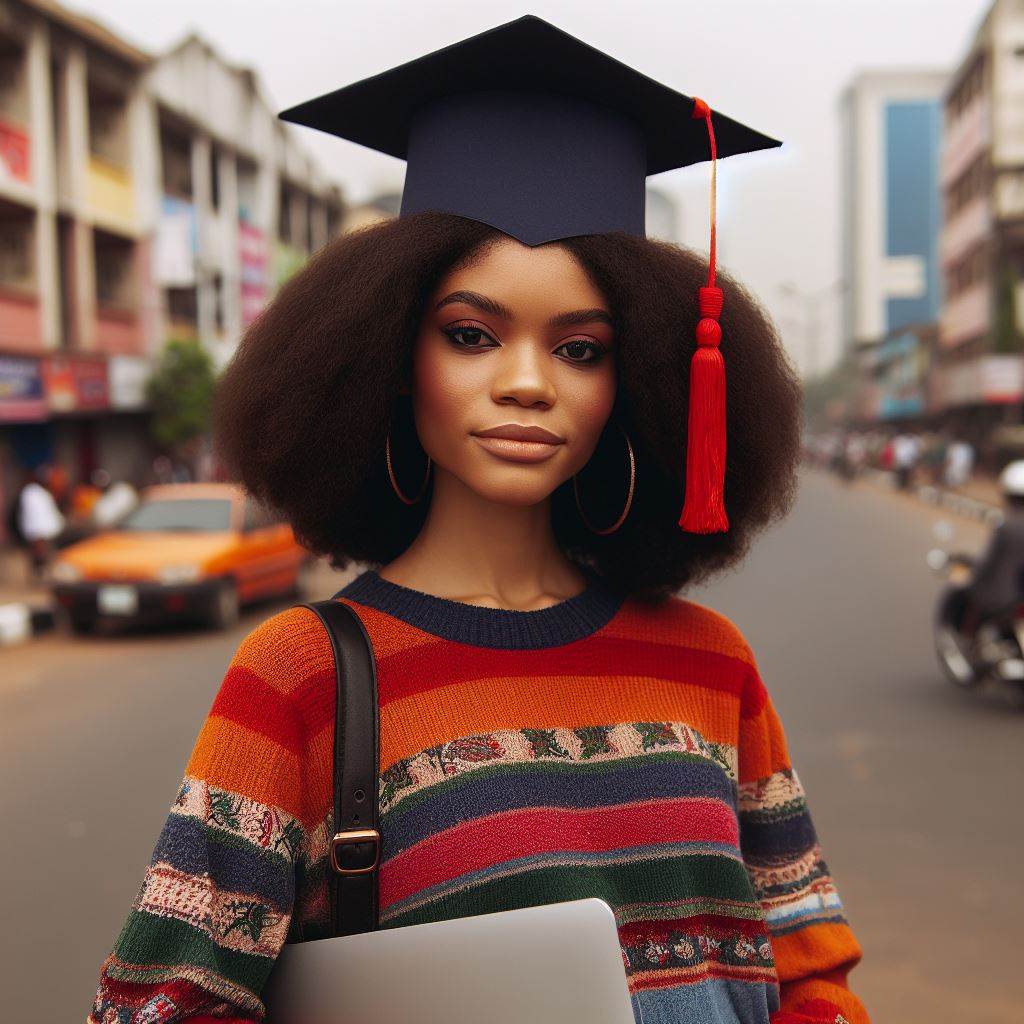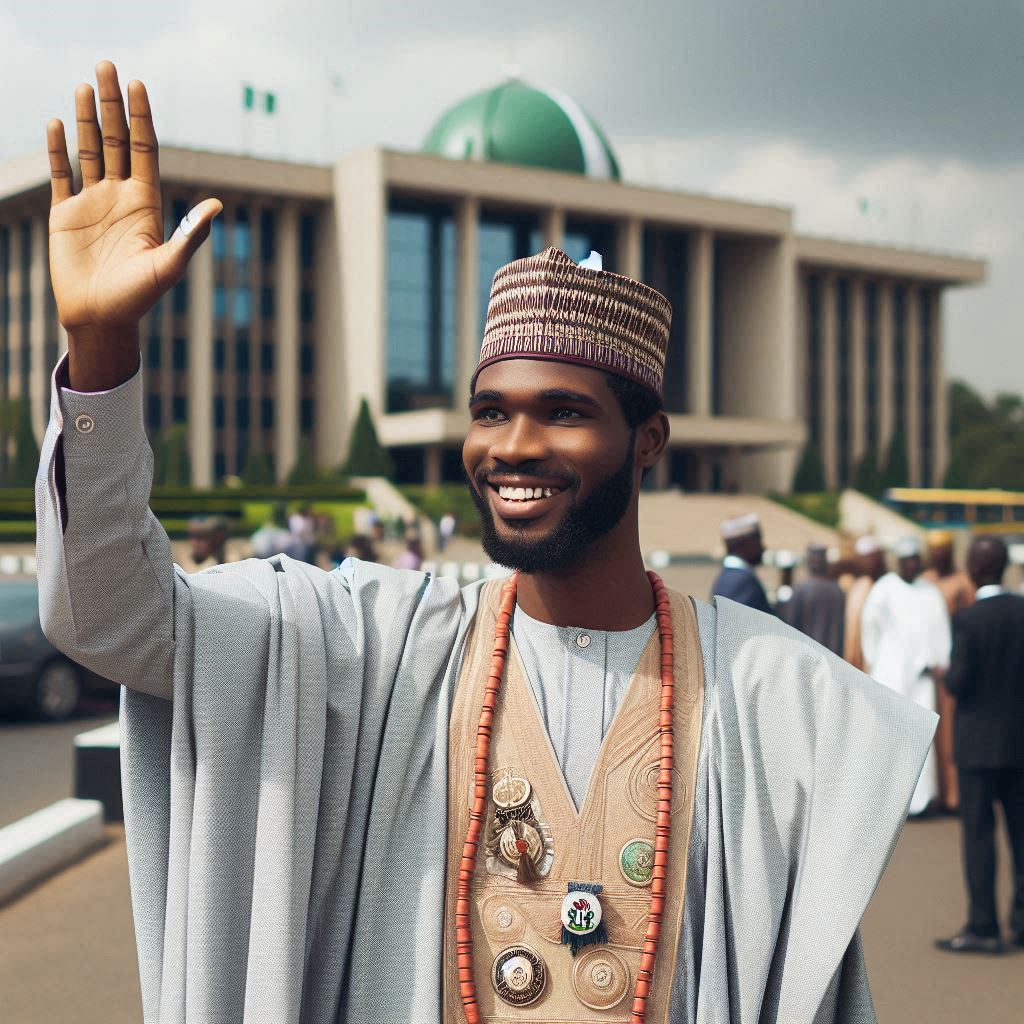Introduction
International politics refers to the interactions between countries on a global scale. It is crucial for Nigerian students to engage in international politics to represent their country’s interests.
In this blog post, we will explore the experiences of Nigerian students in the field of international politics, shedding light on the challenges they face and the opportunities they have to make a difference on the world stage.
Nigerian Student Experiences in International Politics
International politics studies the interactions between countries and the roles of states, organizations, and individuals on the global stage.
It encompasses diplomacy, trade, conflict, and cooperation, shaping global policies and relationships. Understanding international politics is crucial for grasping global issues and dynamics.
Importance of Nigerian Student Participation in International Politics
Nigerian students’ participation in international politics is vital. It offers numerous benefits, enhancing both personal and national development. Here are key reasons why their involvement is important:
- Global Awareness: Students gain insights into global issues, fostering a broader understanding of world affairs.
- Networking Opportunities: They build connections with peers and professionals from different countries, expanding their professional network.
- Skill Development: Engaging in international politics hones skills like diplomacy, negotiation, and critical thinking.
- Cultural Exchange: Students experience different cultures, promoting mutual understanding and tolerance.
- National Representation: Nigerian students represent their country on global platforms, influencing international perceptions and policies.
Main Focus of the Blog Post
This blog post will explore Nigerian student experiences in international politics. We will cover the following aspects:
- Academic Opportunities: Programs and courses available for studying international politics.
- Student Organizations: Involvement in international student organizations and conferences.
- Internships and Fellowships: Opportunities for practical experience in international politics.
- Case Studies: Examples of Nigerian students excelling in international politics.
- Challenges and Solutions: Common challenges faced by Nigerian students and how to overcome them.
- Future Prospects: Career opportunities and the impact of international politics on students’ futures.
Academic Opportunities
Nigerian students can pursue degrees in international relations, political science, and global studies. Many universities offer specialized programs focusing on international politics.
Scholarships and exchange programs provide opportunities to study abroad, enhancing their understanding of global issues.
Student Organizations
Joining international student organizations broadens students’ perspectives. These organizations, such as AIESEC and Model United Nations, provide platforms for discussing global issues. Participating in conferences and seminars allows students to engage with peers worldwide.
Internships and Fellowships
Internships and fellowships offer practical experience in international politics. Organizations like the United Nations and African Union provide internship programs for students. These opportunities help students apply theoretical knowledge in real-world scenarios, enhancing their skills and employability.
Case Studies
We will highlight examples of Nigerian students excelling in international politics. These case studies will showcase their achievements and the impact of their involvement. Stories of success and perseverance will inspire other students to pursue similar paths.
Challenges and Solutions
Nigerian students face various challenges in international politics. These include financial constraints, cultural differences, and limited access to opportunities. We will discuss strategies to overcome these challenges, such as scholarships, mentorship programs, and online resources.
Future Prospects
Studying international politics opens numerous career opportunities. Graduates can work in diplomacy, international organizations, and non-governmental organizations. Their skills and experiences make them valuable assets in addressing global issues and shaping international policies.
Nigerian student participation in international politics is crucial for personal and national growth. By engaging in this field, students gain valuable skills, experiences, and opportunities.
This blog post aims to inspire and guide Nigerian students interested in international politics, highlighting the benefits and opportunities available to them.
Challenges faced by Nigerian students in international politics
When Nigerian students venture into the field of international politics, they encounter several challenges that can hinder their success. These challenges vary from language barriers to discrimination, creating a unique set of obstacles for these students to overcome.
Language barriers
One of the most significant challenges faced by Nigerian students in international politics is language barriers.
Many international forums and discussions are conducted in languages other than English, making it difficult for non-native speakers to fully participate and express their ideas effectively.
Cultural differences
Nigerian students often struggle to adapt to the cultural differences present in international politics.
The customs, traditions, and norms of different countries can be vastly different from what they are accustomed to, leading to misunderstandings and challenges in building relationships with peers from diverse backgrounds.
Lack of resources
Another obstacle faced by Nigerian students is the lack of resources available to them.
Access to research materials, funding for projects, and networking opportunities can be limited, making it challenging for these students to compete on an equal footing with their peers from more privileged backgrounds.
Discrimination
Nigerian students in international politics may also face discrimination based on their nationality, race, or ethnicity. This discrimination can manifest in various forms, from subtle biases to overt acts of prejudice, making it difficult for these students to feel welcomed and respected in academic and professional settings.
Basically, Nigerian students in international politics encounter a range of challenges that can impede their success and affect their overall experience in the field.
Through support, mentorship, and advocacy, we can create an inclusive and diverse environment for students to thrive.
Read: Developing Critical Thinking in Language Arts
Opportunities for Nigerian students in international politics
Scholarships and Exchange Programs
Nigerian students keen on international politics have a plethora of opportunities through scholarships and exchange programs.
These programs facilitate global learning experiences, cultural exchanges, and academic enrichment.
Scholarships offered by international organizations, foreign governments, and academic institutions enable Nigerian students to pursue undergraduate, graduate, or postgraduate studies abroad.
Exchange programs offer students chances to spend a semester or academic year at foreign universities. They immerse themselves in different academic environments and gain diverse perspectives on international politics.
Through scholarships and exchange programs, Nigerian students can broaden their horizons, develop cross-cultural competencies, and build networks with peers from around the world.
Internship Opportunities
Internship opportunities in international organizations are invaluable for Nigerian students interested in international politics.
These internships offer hands-on experience in diplomatic settings, allowing students to apply theoretical knowledge to real-world situations.
Interns may work on projects related to diplomacy, peacebuilding, human rights, sustainable development, or global governance under the guidance of experienced professionals.
Internships offer chances to develop practical skills essential for future careers in international politics. These skills include research, communication, negotiation, and project management.
Internship experiences also enhance students’ resumes, making them more competitive in the job market upon graduation.
Networking with International Organizations
Networking plays a crucial role in advancing careers in international politics.
Nigerian students can leverage opportunities to network with international organizations, diplomats, policymakers, and professionals in the field.
Attending conferences, seminars, workshops, and networking events provides avenues for building relationships, exchanging ideas, and exploring potential career opportunities.
Students stay updated on industry trends, job openings, and opportunities by joining professional associations, student organizations, or online forums.
Building a strong network in the international politics community enhances students’ prospects for success. It opens doors to mentorship, internships, and collaborations.
Participation in Model United Nations Conferences
Participation in Model United Nations (MUN) conferences is a valuable experiential learning opportunity for Nigerian students interested in international politics.
MUN conferences simulate the workings of the United Nations, where students represent member states and engage in debates, negotiations, and drafting resolutions on global issues.
Participating in MUN conferences helps students develop essential skills such as public speaking, critical thinking, research, teamwork, and diplomacy.
It also deepens their understanding of international relations, diplomatic processes, and global challenges.
Moreover, MUN conferences provide platforms for networking with peers, exchanging ideas, and building friendships with students from diverse backgrounds.
Overall, participation in MUN conferences enhances students’ academic, personal, and professional development, preparing them for future roles in international politics.
Read: Communication Arts: Balancing Theory and Practice
Success stories of Nigerian students in international politics
Success stories of Nigerian students in international politics
- One prominent Nigerian student in international politics is Amina J. Mohammed.
- She served as the Minister of Environment in Nigeria and Deputy Secretary-General of the United Nations.
- Her achievements include championing sustainable development goals and advocating for climate change action.
- Amina Mohammed’s dedication and leadership have inspired many Nigerian students to pursue careers in international politics.
Another Nigerian student making waves in international politics is Kingsley Moghalu
- Moghalu is a former Deputy Governor of the Central Bank of Nigeria and professor of international business.
- He is known for his work on economic development in Africa and global governance issues.
- Kingsley Moghalu’s contributions to international politics have been recognized worldwide, inspiring young Nigerians.
Furthermore, Chimamanda Ngozi Adichie is a Nigerian author and activist who has also made an impact in international politics
- Adichie’s writings on feminism and social justice have sparked global conversations and inspired activism.
- She has been a vocal advocate for gender equality and human rights on the international stage.
- Chimamanda Ngozi Adichie’s influence transcends borders, empowering Nigerian students to engage in political discourse.
Lastly, Ngozi Okonjo-Iweala, a Nigerian economist, and former Finance Minister, has excelled in international politics
- Okonjo-Iweala’s leadership at the World Bank and WTO has been instrumental in shaping global economic policies.
- She has been a trailblazer for women in finance and politics, breaking barriers and inspiring others.
- Ngozi Okonjo-Iweala’s success story serves as a beacon of hope for Nigerian students aspiring to make an impact in international politics.
These individuals exemplify the potential for Nigerian students to excel in international politics and create positive change on a global scale.
We aim to inspire and motivate other Nigerian students by highlighting their achievements and contributions in this crucial field.
Read: Introduction to African and Asian Studies in Nigeria

Learn More: History of Philosophy Education in Nigeria
See Related Content: Nigerian Languages in Education: Curriculum and Impact
Delve into the Subject: How Anthropology Helps Understand Nigerian Ethnic Groups
Strategies for Nigerian students to excel in international politics
Nigerian students aspiring to excel in international politics can employ various strategies to enhance their skills and increase their chances of success. This section will discuss key tactics that Nigerian students can adopt to thrive in the competitive realm of international politics.
Improve language skills
One of the essential skills for excelling in international politics is strong language proficiency. Nigerian students should focus on improving their English proficiency, as it is the predominant language used in diplomatic settings and international relations.
Additionally, learning other languages such as French, Spanish, or Mandarin can also be advantageous.
Nigerian students can expand opportunities in international politics by mastering multiple languages. They effectively communicate with diverse individuals.
Build strong networks
Networking plays a crucial role in the success of Nigerian students in international politics.
Building strong connections with professionals, academics, and policymakers within the field can provide valuable insights, opportunities for collaboration, and mentorship.
Attending conferences, seminars, and workshops related to international politics can help Nigerian students expand their networks and establish meaningful relationships with key stakeholders in the field.
Seek mentorship
Seeking mentorship from experienced professionals in international politics can significantly benefit Nigerian students.
Mentors can provide guidance, support, and valuable advice based on their own experiences and expertise in the field.
By fostering mentor-mentee relationships, Nigerian students can gain valuable insights, learn from the successes and challenges of their mentors, and enhance their skills and knowledge in international politics.
Stay informed about global issues
Keeping abreast of current global issues, trends, and developments is essential for Nigerian students pursuing a career in international politics.
Students develop a deeper understanding of the global political landscape by staying informed about geopolitical events, theories, and debates.
Following reputable news sources, reading academic journals, and engaging in discussions with peers can aid Nigerian students in staying informed and well-versed in relevant global issues.
Implementing these strategies boosts Nigerian students’ prospects in international politics. They position themselves for success in global governance and diplomacy.
Read: Famous Nigerian Alumni of Communication Arts Programs
Uncover the Details: Nigerian Language Studies: Universities and Programs
Transform Your Career with Expert Guidance
Get personalized mentorship consulting that’s tailored to your unique path. Our expert advice is actionable and exclusive.
Get StartedImportance of diversity in international politics
The Value of Diverse Perspectives
Diversity enriches international politics by bringing varied perspectives to the table. In a globalized world where interconnectedness is the norm, diverse viewpoints are invaluable.
Each individual, shaped by their unique background, culture, and experiences, offers a different lens through which to view and understand complex global issues.
These diverse perspectives enable a more comprehensive analysis of international events and facilitate the exploration of innovative solutions to global challenges.
Benefits of Having Nigerian Students Involved in Decision-Making Processes
Nigerian students, with their rich cultural heritage and diverse backgrounds, bring a wealth of knowledge and insights to decision-making processes in international politics.
Their perspectives, rooted in Nigeria’s history, traditions, and contemporary realities, offer fresh viewpoints on a wide range of global issues.
Whether discussing diplomacy, human rights, or sustainable development, Nigerian students provide unique perspectives that can shed light on previously overlooked aspects of these topics.
International organizations tap into Nigerian students’ knowledge and expertise by actively involving them in decision-making processes. This leads to more informed policies.
Advocate for Inclusivity and Representation in International Organizations
Inclusivity and representation are essential principles in international organizations. However, these institutions often lack adequate representation from diverse regions and backgrounds, including Nigeria.
It is imperative to advocate for inclusivity and representation to ensure that the voices of all nations and peoples are heard and considered in global decision-making processes.
Nigerian students, along with other underrepresented groups, deserve a seat at the table to contribute their perspectives and insights to shaping policies that affect global affairs.
By championing inclusivity and representation, we promote fairness, equity, and legitimacy in international governance structures.
This not only strengthens the legitimacy of international institutions but also enhances their effectiveness in addressing the complex challenges facing the world today.
Ultimately, diversity in international politics is crucial for fostering a more inclusive, equitable, and effective global governance system.
Nigerian students, with their diverse backgrounds and perspectives, play a vital role in enriching international discussions and shaping policies that affect the world.
By advocating for inclusivity and representation, we can ensure that international organizations reflect the diversity of the world’s population and are better equipped to address the complex challenges of the 21st century.
See Related Content: Rising Stars in Nigerian Performing Arts
You Might Also Like: Nigerian Music: A Cultural Heritage
Conclusion
As discussed in this blog post, Nigerian students face unique challenges and opportunities in international politics.
From navigating cultural differences to advocating for their home country on a global stage, these students play a crucial role in shaping global affairs.
It is important to encourage Nigerian students to actively engage in international politics.
Their voices and contributions are valuable in fostering diplomacy, promoting peace, and advocating for the interests of their nation.
By participating in model UN conferences, internships, and global forums, Nigerian students can gain valuable experience and make a positive impact on the world stage.
In closing, Nigerian students should seize opportunities to engage in international politics and contribute their perspectives to global conversations.
By actively participating in diplomatic initiatives, advocating for social justice, and promoting cross-cultural understanding, Nigerian students can help shape a more equitable and peaceful world for all.




